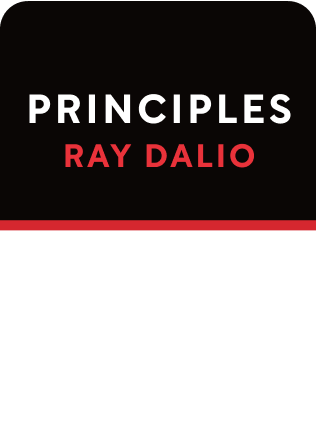

This article is an excerpt from the Shortform summary of "Principles: Life and Work" by Ray Dalio. Shortform has the world's best summaries of books you should be reading.
Like this article? Sign up for a free trial here .
Do you want to know how to hire the right person? Why is it important to hire the right people at your company?
Knowing how to hire the right person for any job can be a challenge. But Ray Dalio outlines how to hire, and qualities you can look for in any candidiate that will help you see whether or not they will be an asset to your team.
Keep reading to find out how to hire the right person for a job, and why it matters.
How to Hire the Right Person
The penalties for hiring wrong are huge. Years can pass when entertaining a bad hire. Many dollars can be spent in training and retraining. The graver hidden costs are a loss of morale among competent team members, and a sense of diminishing standards that will progressively cripple the company. This is why you need to learn how to hire the right people.
The importance of hiring is even greater when you choose people who operate at the highest levels, who are responsible for designing the machine and goals of the organization.
As with most things, Dalio recommends designing a great hiring machine that can systematically produce great hires.
Design the Machine First—Then Find the Person
Focus not just on what should be done—focus on who the right person for the job is. Learning how to hire the right person affects the whole company.
Create a clear mental image of the values, abilities, and skills required for each person in the role to do their job well. Values, abilities, and skills are listed in order of importance.
Values are the fundamental beliefs that drive people’s behaviors. People with similar values get along; people with different values will fight constantly.
What is the difference between abilities and skills?
- Abilities are fundamental ways of thinking and behaving, such as “fast learner” or “high-level visionary.” These are unlikely to change much and are important to select for.
- Skills are learned tools and can be acquired in a finite period of time. These are less important, since capable people can learn new skills quickly.
Once you have an idea of the criteria you’re looking for, create a spec sheet with the criteria that you are looking for.
Do NOT design jobs to fit certain people. You may have favorite candidates in your team and be tempted to fit the role for what they’re good at. This is counter-productive, since the best candidate may come from outside, and knowing how to hire the right person means you look for the right candidate, not where they come from.
Systematize the Process
Most organizations hire by asking semi-random questions and then choosing based on how much the interviewer liked the person. This is prone to error and does not lead to systematic selection of strong team members.
To build a good interview process, think through what questions will be asked, and how different answers differentiate candidates of different qualities.
Save the answers that candidates give. Once the people you hire give you performance data, you can tell how predictive the questions are of certain behaviors.
So how to hire the right person? Humans are subjective evaluators of other people. Design the process to minimize the bias:
- When the interviewer is tasked with making intuitive judgments about a person, capture the interviewer’s evaluations. This will let you assess their track records of accuracy later.
- People pick people similar to themselves, so choose interviewers who embody the qualities and abilities you’re hiring for.
Consider using personality assessments to know more about a candidate, and think more about how to hire the right people.
How to Hire the Right People: Look for the Extraordinary
The difference between average people and outstanding people is big. If you’re not excited about a candidate, don’t hire them. Hold out for exceptional people.
Consider the applicant’s track record to see if they have demonstrated themselves to be extraordinary in some way. While brilliant people often make for great hires, experience and a great track record mean a lot. Malcolm Gladwell has a rule that it takes 10,000 hours to master something, and Dalio has found specialists who spent decades honing their craft.
- To show the skills of a rookie, have them debate an experienced veteran to see how they hold up.
Dalio likes people who ask great questions more than people who have great answers. This is one strategy for how to hire the right employee.
Don’t hire people just for the first job they’ll do; hire people you want to spend decades with.
How to Hire the Right Person—and Avoid the Wrong One
- Talk to believable references who can give you a clear picture of the candidate’s career path. Candidates tend to exaggerate accomplishments.
- Success in school, like high grades and honors, is a limited gauge of certain attributes: memory and processing speed, determination to succeed, willingness to follow directions. Success in school does not necessarily correlate with common sense, vision, and creativity.
- Beware the “impractical idealist” type—these people don’t execute practical plans that produce results.
- Don’t use your influence to do someone a personal favor and get them a job. This is bad for the team, since it undermines the process, and it’s bad for your reputation.
- People don’t change all that much. Assume that what you see is what you get, and don’t hope for some miraculous change.
- Make sure hires have both great character and great capabilities. Having one without the other is harmful to the organization.
- Show candidates the bad parts of your company too. Put them in situations showing the most difficult aspects of your principles, so you’ll test their endurance under challenge.
Consider all these factors when learning how to hire the right employee.
Making the Offer
Compensate in ways to cover both stability and opportunity. Pay enough so people aren’t stressed for money, but not enough that they become complacent. They shouldn’t come to you just for job security; they should be motivated to earn more money through good work.
Start with what a person of similar skills gets on the market. Don’t use job titles as the sole comparable.
Then build in incentives based on performance metrics so they’re motivated to outperform.
Pay north of fair. Dalio thinks the best negotiations are those in which both parties argue that the other should take more.
Whenever you’re ready to make an offer, think one last time about what important things can go wrong and how you can raise your probability of being right.
Now that you know how to hire the right employee, make sure you use these new skills to make great hiring decisions.

———End of Preview———
Like what you just read? Read the rest of the world's best summary of Ray Dalio's "Principles: Life and Work" at Shortform .
Here's what you'll find in our full Principles: Life and Work summary :
- How Ray Dalio lost it all on bad bets, then rebounded to build the world's largest hedge fund
- The 5-step process to getting anything you want out of life
- Why getting the best results means being relentlessly honest with everyone you work with






